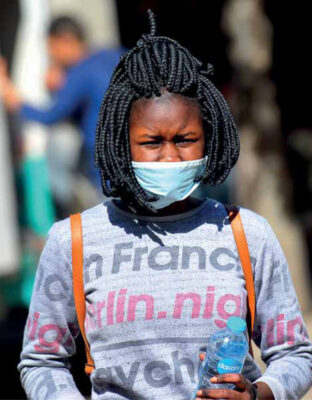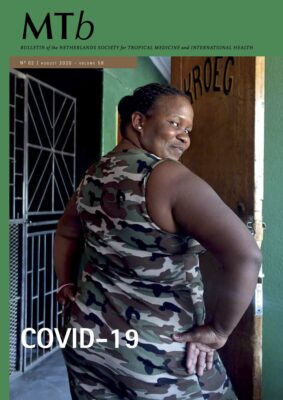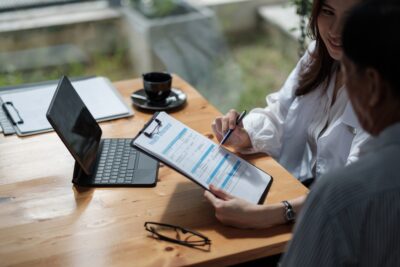
COVID-19
Editorial
COVID-19: Contradictions, confusion, and complexity
It is mid-July 2020. Some countries are experiencing the peak of the Covid-19 pandemic, while others have loosened their lockdown measures, anticipating a continued slowdown of the epidemic. Meanwhile scientists around the world are working on the development of an effective vaccine. CONTRADICTIONS In Japan, the management of a sea aquarium invites visitors to video chat with their 300 sea eels and wave at them as they showed signs of stress because of the absence of the public in the past months. Hundreds of thousands of mainly female garment workers in Bangladesh ignore the nationwide lockdown in order to earn back some of the income loss they experienced over the past months. More than 49 million women are lacking contraceptives, a situation which according to the WHO is likely to result in a baby boom. Donald Trump asks scientists to research the effect of injecting disinfects into a person in order to fight the virus. While the Italian government still provided food rations for the needy, shrewd businessmen developed protective plastic shields for the sunbeds – in anticipation of the tourists that would come as soon as lockdown restrictions in Italy were to be released. State prisons in California are releasing 3,500 inmates to protect them from potential exposure to the virus as a result of the conditions in the prisons. Research from Stanford University shows that, in a country were some 1.6 million people die each year of respiratory diseases, the improved air quality has saved the lives of more than 1,400 children under age 5, and 51,700 adults above 70 years of age. Meanwhile the virus has spread to 188 countries, with more than 13,876,441 confirmed cases of Covid-19 (7.3 million in the Americas), including 593,087 deaths reported to the WHO.[1,2] CONFUSION In the absence of a vaccine we have witnessed a wave of containment measures, roughly ranging from total lockdown to the so-called intelligent lockdown (relying on the idea of group or herd immunity and a sense of responsibility on the part of the population) introduced in the Netherlands. The Dutch were accused of lacking solidarity with neighbouring countries’ approaches – an interesting observation, given the overall lack of solidarity and coordination at European (and global) levels.[3] With this approach, the Dutch government wanted to ‘cushion the social, economic and psychological costs of social isolation and make the eventual return to normality more manageable’.[4] And while social distancing in high-income countries may have saved lives, the question is at what cost? Low-income countries are anticipating counterproductive effects, including a potential rise in other (infectious) diseases and rising morbidity and mortality figures caused by other diseases, as well as a devastating effect on fragile economies and informal sector workers. Adding to the confusion are the many variations in tracking and reporting approaches and misleading or missing data. Reflecting on the past months challenges us to decide on a “new” normal. Can we push a “reset” button, thereby building on some of the (positive) lessons – for example working from home and reducing our ecological footprint by (r)evolutionizing international conferences.[5] COMPLEXITY Currently it still feels like a global Catch22. Without a concrete prospect of a vaccine or treatment, the virus will hold the world in its grip for months and possibly years to come. While some countries seem to have succeeded in containing Covid-19 (China, Taiwan, Vietnam), others are experiencing a peak in infections (countries in Latin America and South Asia). Meanwhile, in some part of the USA the situation is spinning out of control, and African countries are experiencing an early state of the epidemic. Europe seems to be somewhere in between.[6] It feels like we are at a crossroads, and much will depend on the choices that we the public, our governments, and world leaders are making – choices that will have an impact on societies at large, impacting on all aspects of life. The Covid-19 crisis is testing our capacity to deal with the societal consequences of pandemics and to balance economic interests without losing sight of the (health) risks involved. With this edition of MTb, we intend to challenge these three Cs in a constructive manner with articles shedding light on the clinical management of the disease, Covid-19 against a historical perspective of epidemics, field experiences in LMICs, the effect of the pandemic on the refugee crisis in Greece, the role of the WHO, and efforts to counteract vaccine nationalisms. We look forward to your reflections and invite you to react using one of our (social) media channels.
Esther Jurgens
Ed Zijlstra
References
- Geneva: World Health Organization. WHO coronavirus disease (COVID-19): dashboard
updated 2020 Jul 21
- Contradictions collated in the magazine 360 (2020 Jul 9-Aug 20;183)
Based on experiences from correspondents of the Swiss magazine Reportagen
- Coronavirus: EU’s existential crisis: why the lack of solidarity threatens not only the Union’s health and economy, but also it’s security
The Hague: Clingendael Institute; 2020 Apr. 5 p.
- Coronavirus: why Dutch lockdown may be a high-risk strategy
BBC News, 2020 Apr 5.
- Opinie: wetenschappers, het is niet van deze tijd de wereld over te vliegen voor ieder congres. De Volkskrant
2020 Jul 1.
- The new normal: Covid-19 is here to stay: the world is working out how to live with it
2020 Jul 4






















































